“Call Me Toco””by Matias Travieso-Diaz A beautiful Taíno maiden was once seized and imprisoned by a band of marauding Carib warriors. Overcome by grief over her captivity, she took her own life. However, Atabey, the goddess of fertility, calm waters, and the moon, took pity on the young suicide victim, returned her to life in the form of a bird, the tocororo, and set it free to roam forever throughout Cuba’s vast woodlands. Taino legend Humans, those flightless creatures that overflow the surface of my homeland, call me “tocororo” because of my peculiar staccato call, which their perception organs translate into something like “toco-toco-tocoro-tocoro.” It is an inaccurate description of how I sound, and I would just rather be called Toco. I have frequently noticed how humans observe me attentively when they see me perched on a tall palm tree or watch me hover across the skies. I care not about humans, but they appear to be very interested in me. Perhaps they are looking for similarities between their kind and mine. For that reason, I will describe myself in some detail, leaving it to others to draw any differences and similarities that may exist between my kind and the humans. In size, I am slightly larger than those bright elongated fruits that hang in clusters from the tops of thick, wide-leaved trees. I am small by comparison with many of the other types of feathered animals that fly above this land; however, I take pride in my coloring, which is more distinctive than that of most other creatures, feathered or not. My back is the color of dark pine fronds, my crown is like the late twilight sky, my throat and the upper part of my chest are as light as sea foam, while my lower belly disolays a vivid, contrasting hue, like the blood of an injured ground animal. I often groom myself, and it seems that most humans I encounter groom themselves carefully and cover their bodies with weavings of striking colors. Also, certain large weavings that hang outside the humans’ nests are of the same hues as my feathers. When I referred to my call, I neglected to mention that it was loud. It resonates throughout the forest as I sing, perched on a tree or in midflight. Although my hearing is not as keen as my eyesight, I often become aware of the presence of humans by how loud their calls are. Their calls do not follow any pattern that I can discern, except that the ending of every burst of sound they emit is louder than the rest of the phrase: it is as if they were letting each other know they were finished. However, often two or more humans issue their calls simultaneously, so their sounds overlap and seem to cancel each other. They also often move their upper limbs and other parts of their bodies when they sing, which is something I never do. Those feathered animals that prey on others living creatures always fly alone; by contrast, tocororos like me often travel above ground in amiable bands of three or four, a behavior that humans imitate, for they gather in congenial groups, often emitting a particular type of short call that, once issued by one human, is repeated by its companions. They place themselves outside their nests and remain there, issuing calls to one another, for long periods of time. When they are together, humans make wide gestures with their upper limbs and often touch each other’s bodies. They always seem inclined to maintain close physical contact with one another. Those of my kind feed by using our long, curved beaks to forage for food, sallying from a perch or hovering at foliage to reach the fruit. We eat mostly insects, fruit, and flower buds, but also feed small scurrying animals to our young. I have often observed humans leaving food for us and other feathered creatures to enjoy, choosing things we like instead of the ones they favor. That behavior can perhaps be attributed to the abundance and quantities of the foods humans consume, although in my flights above human habitations I have recently noticed that the foods available for them to partake seem to be getting scarce. Some feathered animals are feared because they steal eggs from nests or attack other living creatures. Although I have seen instances of humans engaging in that type of behavior against each other, I have never spotted humans doing such things to us, feathered animals. Tocororos build their nests in tree cavities, often in old palm trunks or dead branches. Humans also dwell in cavities they build above ground. Their building of such cavities, which they do in clusters of many units, is an aspect of their behavior that is detrimental to us, because to make room to build their nests they often clear wide areas of the forest, depriving us and other animals of places to live and diminishing our sources of food. Humans also remove trees to plant shrubs or smaller vegetables, which they turn into their food or use for other purposes, thus forcing us to relocate to inaccessible areas, which are starting to disappear as well, making life difficult for us. Another peril that we face from humans is their attempt to capture us. Sometimes they do this in order to kill us and collect our feathers. They seldom succeed in this because we are skilled fliers, capable of swift and agile movements, and elude capture by darting in and out of the forest canopy. Worse perhaps are the attempts that some humans make to capture and imprison us in small enclosures within their dwellings. We cherish our freedom, the ability to roam unimpeded, with no bounds other than the seas that surround this land. In captivity, we languish and soon die. Humans should know better than to do this to us, because they themselves appear to enjoy their freedom and perhaps would also decline if kept in captivity. From time to time, I have seen large flying objects move high in the air, sometimes traversing our territory, others moving away to cross the seas that surround us, going towards unknown destinations. Such objects probably contain humans, and if they do, this would indicate that humans, like tocororos, enjoy moving across long distances and want to be able to do so. For freedom is the most precious gift available to all of us. 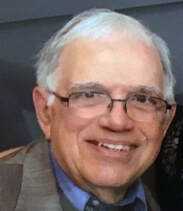 Born in Cuba, Matias Travieso-Diaz migrated to the United States as a young man. He became an engineer and lawyer and practiced for nearly fifty years. After retirement, he took up creative writing. Over one hundred of his short stories have been published or accepted for publication in paying anthologies, magazines, blogs, audio books and podcasts. A first collection of his stories, The Satchel and Other Terrors is available on Amazon and other book outlets.
0 Comments
A Stay in Mayamiby Matias Travieso-Diaz The greatest danger for most of us is not that our aim is too high and we miss it, but that it is too low and we reach it. Michelangelo Eufemio Pérez Pérez was very unhappy with his name. As a youth growing up in Cuba in the nineteen forties, he rankled every time someone referred to him—whether in jest or seriously—as “un Pérez cualquiera,” a derogatory phrase that branded him a member of the lower classes, a pariah of society. The multiple “Pérez” in his surname tainted him even more—twice as common, cheapest among the cheap. Eufemio reacted to his perceived stigma by making his purpose in life to become a somebody, a man of fame, stature and accomplishment. In High School Eufemio exhibited a decided lack of distinction. He flunked more courses than he passed, and ultimately dropped out without ever graduating. He was unemployed for a while until he was able to enroll in a trade school where he received training as a draftsman. He was hired by an engineering firm to help prepare technical drawings for a number of projects, and his performance was barely adequate. He was kept on the job mainly because he had learned to be obsequious with his superiors. Nonetheless, he saw no possibilities of advancement and bemoaned how his vulgar name kept holding him back. Things took a turn for the better in January 1959. The country’s ruling gang fled and a new team of bearded rebels came to power. Soon, drastic changes to the Cuban society began to take place, and industries and commercial concerns were seized by the government. Nationalized enterprises were put in the hands of apparatchiks with no qualifications other than loyalty to the Revolution. The engineering offices that employed Eufemio were seized and a minor “comandante” was put in charge. Eufemio saw the changes as an opportunity to advance himself. He proclaimed: “I’ve been a true revolutionary from day one,” and formed one of Havana’s first “Committees for the Defense of the Revolution” (a network of vigilantes whose function was to spy on other citizens and foil potential anti-government activities). He marched in all the parades, attended all mass rallies, and went to the countryside on weekends to cut cane and help with the sugar harvest. He spied on his co-workers for potential counterrevolutionary infractions, and reported several people to the Interior Ministry for prosecution and incarceration. He was secretly branded by his co-workers as a “chivato” (informant) and universally despised. He defended his snitching on others by arguing: “It’s their fault for not getting in step with the Revolution. Al camarón que se duerme se lo lleva la corriente” (The shrimp that falls asleep is carried away by the current). By late 1961 he was well connected within the government and had become a promising low-level member of the ruling class. He was then offered a position as personal assistant to the manager of the Matahambre copper mines in the western province of Pinar del Río. The job required him to move to the village of Santa Lucía, a hamlet ten kilometers from Matahambre. Santa Lucía was nowhere: a shabby village of under a thousand inhabitants, mostly mine workers. The town’s main attraction was a little harbor built for mined ore transport. When he was not busy helping the manager ride herd on the miners, Eufemio sat on the harbor’s pier to do a little fishing and coordinate contraband deliveries of copper ore to Mexican smugglers who resold the mineral in the American markets. He also went frequently to the only bar in Santa Lucía; there he met Cecilia, a buxom, good natured country girl who waited on tables and fraternized with the miners. Eufemio courted Cecilia and soon turned her into his common-law wife. He did not love Cecilia, who he felt was beneath him in every respect, but availed himself of her favors. He felt women were weak creatures whose only virtues lay in their orifices capable of receiving a male’s attentions. In October 1962 a new face was seen in Santa Lucía. The man, one Miguel Angel Orozco, identified himself as a researcher from Oriente University, come to Matahambre to study the varieties of copper ore found at the mine for comparison with those from the El Cobre mine near Santiago de Cuba. Eufemio met Orozco by chance at the bar, and after a few beers concluded that Orozco’s knowledge of copper mining was not much greater than his own. Eufemio found it hard to believe that the government would allow someone so ignorant of mining matters to travel from one end of Cuba to the other analyzing ore. As he had done to his some of his neighbors years before, Eufemio felt no compunction about turning the stranger in. He made a quick call to the security police to report potential counter-revolutionary activity. Agents arrested Orozco and another man, Pedro Vera Ortiz, who was Orozco’s accomplice. A large quantity of weapons and explosives was discovered in Orozco’s rented quarters. The government said the captures smashed a plot to blow up the Matahambre and Nicaro mines in the Pinar del Rio and Oriente provinces. Under interrogation, Orozco admitted that he and Vera had landed clandestinely in Cuba, sent by the CIA to carry out acts of sabotage. For starters, they planned to destroy the aerial transport system at the Matahambre mine. Four hundred miners could have lost their lives if workers operating the aerial link cars had not seen the explosives that Orozco intended to detonate at the base of the towers anchoring the cable railway. Eufemio was interviewed many times by the Cuban and foreign press and did not miss the chance to play up his alertness and revolutionary zeal. In the interviews, he proclaimed himself a revolutionary hero and stated for the record that his name was “Eufemio del Cerro,” a name under which he had chosen to be known in the future. His change in name was noticed by the state security but acquiesced to--it was not the first time that a revolutionary figure had found it desirable to adopt a new name to improve his image. Thanks to his unmasking of the Yankee saboteurs, Eufemio del Cerro was promoted to assistant general manager of the Matahambre mine, and helped preside over an operation that, at its peak, produced 50,000 tons of ore a year and gave employment to more than 1,000 workers. Eufemio pocketed the proceeds of selling 1,000 additional tons to the Mexicans on the black market, an activity for which he grossed--after sharing with his partners in the enterprise--$100,000 a year. Half of this he had to kick back to his superiors at three levels of government to be allowed to continue with his scheme but the balance, $50,000 a year, allowed him to live as a prince in a country where misery ruled most of the population. The good times at Matahambre came to an end in 1997 when the regime, citing increased costs of production and the drop of the price of copper in the international market, closed the mine and laid off all the workers. Eufemio was forced to return to Havana, but given his rank he was given the opportunity to move into a nice apartment in a building that had been the mansion of a now-exiled sugar baron. He left Santa Lucía one night, without saying goodbye to Cecilia. She was three months pregnant and the child was probably his; he never contacted her again. Once in Havana, Eufemio was appointed secretary to one of the Vice-Ministers of the Ministry of Basic Industry, which oversaw the mining enterprises in the island. Since Matahambre was shut down, Eufemio was switched to support the nickel industry, one of the most important sources of foreign income for the country. Eufemio was still working at the Ministry of Basic Industry when a negotiation was started in 2010 for the expansion of a major nickel and cobalt processing plant in eastern Cuba, the Pedro Soto Alba nickel facility —a joint venture between the state-owned nickel company Cubaniquel and Canadian mining company Sherritt International Corporation. Soon, several Government officials, including Eufemio’s boss, arranged to receive bribes in exchange for the timely deployment of qualified personnel and other project support. In a related scheme, the officials demanded kickbacks from contractors supplying equipment for the project. Eufemio received under-the-table payments from his boss for his help in carrying out these illegal transactions. It was all fine and dandy until the government launched a corruption investigation in 2011, leading to the conviction a year later of three Vice Ministers and nine other defendants. Eufemio’s boss was among those given jail terms. Eufemio pretended he was not involved in the criminal enterprise of his superiors, and gave critical testimony at the trial about their “secret meetings” and “commercially unjustified actions.” This testimony was instrumental in the convictions of his boss and some of the other defendants. His cooperation with the investigation saved him from the same fate, and it was conveniently determined that there was no concrete evidence of his involvement in the corrupt schemes. But a file on Eufemio del Cerro (aka Eufemio Pérez Pérez) was nonetheless opened in the Interior Ministry. The Revolution welcomes Judases but does no trust them. Given the Ministry of Basic Industry’s involvement in the Pedro Soto Alba plant scandal, the Castro government disbanded the Ministry and replaced it with a new agency, the Ministry of Energy and Mines. Eufemio del Cerro became an employee of the new Ministry and tried to keep a low profile, for he feared that sooner or later he would be called in to account for his past misdeeds. The Canadian head of one of the companies involved in the supply kickbacks had been in prison without charges since 2011, but three years later he was brought to trial and convicted of bribery, fraud, and tax evasion. Among the documents in the massive dossier used to convict him was a receipt for a payment in 2010 to Eufemio’s former boss, which was actually signed by Eufemio because his boss was on vacation. Eufemio learned of the existence of this incriminating document from a contact in the office of the prosecuting attorney (who was a friend of Eufemio’s imprisoned boss), and was told that the prosecutor intended to initiate a new criminal proceeding directed at Eufemio, among others. Eufemio was irate at being “singled out” for punishment, decided he had no friends left in power, and felt things were becoming too hot for him. He had to get out of Cuba. Finding a boat to take him out of the country was not difficult; several of the people he knew in the government had yachts moored at the newly refurbished Marina Hemingway, which they took on fishing and pleasure trips to Mexico and the Bahamas. However, he could not find anyone who was willing to risk prison to help him escape. Finally, one of his acquaintances, while refusing to transport him, offered to put Eufemio in contact with a fisherman who might be willing to take him to Florida. Eufemio contacted the man, who demanded an outrageous sum of money for the job, but Eufemio was not in a position to haggle. He emptied his bank account and turned most of the proceeds over to the man. The fisherman picked him up outside his building, drove him west to Pinar del Río, boarded him on an ancient shrimping boat, and carried him away in the dead of night. Just before dawn the following day, Eufemio was dropped at Smathers Beach, near the center of the city of Key West. He had left Cuba not a moment too soon: he later learned that a squad from the Intelligence Directorate (the dreaded G2) had been to his apartment seeking to arrest him the day after his departure. “That will teach them” he told himself. “I’m too smart for those amateurs.” * * * Eufemio was reluctant to seek political asylum in the United States, for he was certain that the CIA was aware of his involvement in quashing the Matahambre operation. He decided to drop out of sight for a while and lose himself in the amorphous Latino community in Miami. As most Cuban government officials of rank, he had spirited thousands of dollars away from the country and deposited them in a Miami bank, with the account under his birth name to better hide the assets. Ironically, he had to become again a Pérez Pérez in order to retrieve his money. “I’ll get my good name back as soon as I am legit” he promised himself. Eufemio was already in his mid-seventies and had intended to keep a low profile for the rest of his life. However, his need to restore his public image made him become involved with the Cuban Republicans in southern Florida, a motley group that included among its members individuals once associated with the pre-Castro Batista regime, former businessmen and property owners who had been dispossessed by the Communists, and people who still resented the failure of the Democrats under John F. Kennedy to provide military support to the Cuban expeditionary force that was decimated in the 1961 Bay of Pigs disaster. Joining this group represented a complete reversal of Eufemio’s political allegiances, but he was never much of an ideologue and was able to adapt easily to the beliefs of his new friends. In the presidential election of 2016, Eufemio did some campaigning for Donald Trump among the Cuban expatriate community and welcomed Trump’s victory. He was hoping to get tapped for some work in the new administration, but his being an undocumented alien was a major obstacle that had to be overcome. He sought to enlist the help of the Florida Republican Party to regularize his legal status. He bragged: “I’m an expert on Cuban politics. If you can get me admitted legally into the United States, I’ll give you the Cuban vote, which is wobbly these days.” The party leaders offered him a trade: they would get him political asylum and maybe even a “green card” if he would campaign widely among the general Latin population in South Florida, not just the Cubans. He would extol the virtues of the President and his administration and excoriate the deep state, the lying press, the corrupt intelligence agencies, the illegal aliens, and the liberals that wanted to keep the country on its knees. In early 2018 Eufemio was invited to give an address to a group of non-committed Latins in the social hall of a Catholic church in Little Havana. His remarks were intended to sway the audience and bring them into the Republican fold. He defended the President, which “every patriot should do, no matter what who he is or where he comes from.” He acknowledged the man’s faults, but pointed out that the country had been brought down by his predecessors, and “he is the only one who can get us out of this mess.” Eufemio had just finished giving his speech when there was a disturbance in the back of the room. A dozen burly men wearing black jackets that displayed the initials “ICE” burst into the gathering and ordered: “Everyone remain where you are. You are all under arrest!” The organizer of the meeting cried out in protest: “What’s this? Why are you breaking into a lawful meeting?” An agent responded curtly: “This church is known to give sanctuary to illegal immigrants. Anyone who is a U.S. citizen or a legal resident will be released as soon as his status is confirmed.” Two buses were parked outside the church. Eufemio and several dozen people were herded into the buses, taken to a police station, and interrogated. Most detainees were released after several anxious hours; Eufemio and half a dozen Guatemalans and Salvadorians were kept in custody due to their inability to demonstrate their lawful presence in the country. Efforts by Republican Party officials to free Eufemio were thwarted by the intelligence agencies. They leaked to the press Eufemio’s true identity and his role in defeating a covert U.S. operation to overthrow Castro. The attendant notoriety made Eufemio’s release a difficult public relations task for the politicians, who had little interest in protecting a tainted Latino. At his deportation hearing, an FBI agent confirmed that the man who called himself Eufemio Pérez Pérez was in fact Eufemio del Cerro, a member of the Cuban Communist Party who had foiled efforts to restore democracy in the island and had infiltrated the United States for nefarious purposes. He was a prime candidate for deportation. Eufemio was flown back to Havana on a cold February morning. Police and Cuban intelligence agents were waiting for him as he deplaned, for his deportation had been well covered in the media on both sides of the Florida Straits. Three months after his arrest he was found guilty of corruption and multiple acts of theft of public property dating back to the sixties. He was given a thirty-year sentence and sent to a prison farm in a remote area of eastern Cuba. His enfeebled condition spared him the back-breaking work on the fields, but he was assigned to carry out sanitation duties throughout the camp. Watching his figure, bent with age and humiliation, as he mopped around urinals and cleaned filthy toilets, some of the inmates would question who the wretch was. The invariable response, accompanied by a shrug, was “bah, es un Pérez cualquiera.” 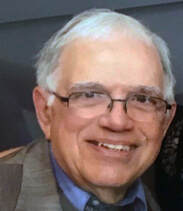 Matias F. Travieso-Diaz, is a Havana-born engineer and attorney, currently residing in the Washington, D.C. area. After over four decades of practice, he retired and turned to creative writing. His short stories have been published in numerous publications, including the New Reader Magazine; the Dual Coast Magazine; the Dream of Shadows MagazineCzykmate Productions - How HORROR-able Anthology; the New Orbit Magazine; the Clarendon House - Maelstrom: The Inner Circle Writers’ Group Literary Anthology 2019; and Selene Quarterly Magazine. Excerpt from Death Under the Perseidsby Teresa Dovelpage Chapter One: Surprise Tickets The cruise ship Narwhal, all twelve decks of her, towered above the terminal building. It had a festive air, with the hull painted white and bright ribbons of red, yellow and green splashed all over. From a distance it looked like a giant tropical bird that had inexplicably landed on water. August in Miami was, as usual, ninety-four degrees with a devilish mix of heat and humidity that made you want to crawl inside a refrigerator. The Nautilus instructions said to be at Terminal B before noon, but it was well past one and the line to enter the building wasn’t moving. It was worse than being at an airport, por Dios! Then I remembered that we had no right to complain. After all, we had gotten the cruise for free. I was still scratching my head about the whole thing. It all began when a young woman showed up at Pretty and Pampered, the pet grooming salon where I worked part-time, asking for me. She looked like a teenager, but dressed professionally in a beige suit, and introduced herself as a Nautilus representative. I was getting ready to give a summer cut to a standard poodle when she presented me with an embossed envelope and cooed, “Congratulations, Ms. Spivey! You’ve just won two cruise tickets to Havana!” I was born and raised in Havana. After marrying Nolan in 2008, I had returned many times to visit my grandmother but never thought of taking a cruise back. And in July 2017, sailing to Cuba was the last thing on my mind. “I’ve won what?” I asked. The poodle took advantage of my surprise to get away and hide under a chair. “A couple of tickets!” the girl chirped, perky as could be. “Aboard the Narwhal, our most popular ship! The cruise’s departing on August the tenth.” Nautilus Cruise Line had started to offer short cruises that included Cuba in their itineraries, she explained. They were carrying out their biggest ever promotional campaign with many giveaways. I was one of the lucky winners. Cool, eh? What that chick didn’t say was how and where I had signed up for the raffle or whatever it was that I had won. I used to enter sweepstakes that promised everything from five hundred dollars a week for life to a grand prize of a million, or a Porsche, or a weekend in Paris, but that was a long time ago. It had finally dawned on me that most were a waste of time, if not outright scams. I didn’t know how these Nautilus people found me either, but I guess everybody’s information is online nowadays. Besides, the idea of winning something, anything, was appealing. I kept my mouth shut and accepted the “gift.” As soon as the girl left, Candela hugged me. She smelled of patchouli, sandalwood incense and, faintly, wet dog hair. “I’m so happy for you!” she said. “That’s the start of the hot streak I told you about. ¿Viste?” I didn’t “see” anything clearly, but went along with her. Candela and I had met at a Starbucks in 2011. Nolan and I had been in Gainesville for around five months, and I already missed Miami and the friends I made there. Not that there were many. Since I didn’t drive yet, I couldn’t go out on my own to meet new people, and my husband’s colleagues wouldn’t have anything to do with me. I needed someone to talk to. To vent, actually. In my own language. So I was waiting for my iced caramel cloud macchiato when someone said coño aloud. Coño is like the freemasons’ secret handshake for Cubans. I looked up and saw a young woman, curvy and petite, with arms covered in jingling silver bracelets and a zodiac sign necklace. “You Cuban?” I asked shyly in English. “Kinda of.” She smiled. “You are.” Daughter and granddaughter of Cubans, Candela spoke fluent, if at times old-fashioned Spanish. She was into esoteric stuff—astrology, the Law of Attraction, the Ascended Masters, the whole metaphysical enchilada. She said she liked my aura that first day. I just liked hanging out with someone who cursed in public. We became fast friends. When she opened Pretty and Pampered, I joined her as a “pet stylist.” I didn’t know much about styling pets but enjoyed working with cats and dogs, and even the occasional rabbit—why anybody would want to groom a rabbit is beyond my understanding. The cochinos stink and bite, and I got three stitches after a Holland Lop tried to take off my finger. The weekend before the ticket surprise, Candela had read the Tarot for me. I got the upright Wheel of Fortune, one of the most auspicious cards for money, according to her, and the Eight of Wands, up too, indicating a trip. I also drew the Star Reversed. “A warning sign, but you got two good cards out of three,” she concluded. “The Star Reversed just means you should be careful, now that so many wonderful things are bound to happen.” Even if I didn’t believe in Tarot, the Eight of Wands card popped into my head when I opened the envelope with the Nautilus Cruise Line logo. I thought of Nolan, too. His job situation had him all stressed out. The cruise could be turned into something fun, a second honeymoon of sorts. We hadn’t had much intimacy, sexual or otherwise, for months. I hadn’t called him “papito,” my romantic nickname for him, in a long time. He needed a vacation, poor guy. So did I. Candela passed me the poodle, who wasn’t happy to be back on the grooming table. “You’re going to live la vida loca for a few days, Merceditas. It’ll do you good!” Candela was the only person in Gainesville who called me Merceditas—the affectionate form of Mercedes. Everybody else called me Mercy; Merceditas was too long and difficult to pronounce for most Americans, including my husband. I had tried using Mercedes, but people kept asking why I had been named after a car. ....  Teresa Dovalpage was born in Havana, Cuba. She has a PhD in Hispanic Literature from the University of New Mexico and is currently a Spanish professor at New Mexico Junior College. She is the author of twelve novels and three collections of short stories. Her Havana Mystery series, published by Soho Crime, debuted with the culinary mystery Death Comes in through the Kitchen (2018). The second, Queen of Bones (2019) was chosen by NBC News as one of the top “10 books from 2019 by and about Latinos.” The third is Death of a Telenovela Star (2020), set on a Caribbean cruise. Upcoming is Death under the Perseids (December 2021). |
Archives
July 2024
Categories
All
|
Donate and Make Literature Happen
is published by the Somos En Escrito Literary Foundation,
a 501 (c) (3) non-profit, tax-exempt corporation. EIN 81-3162209


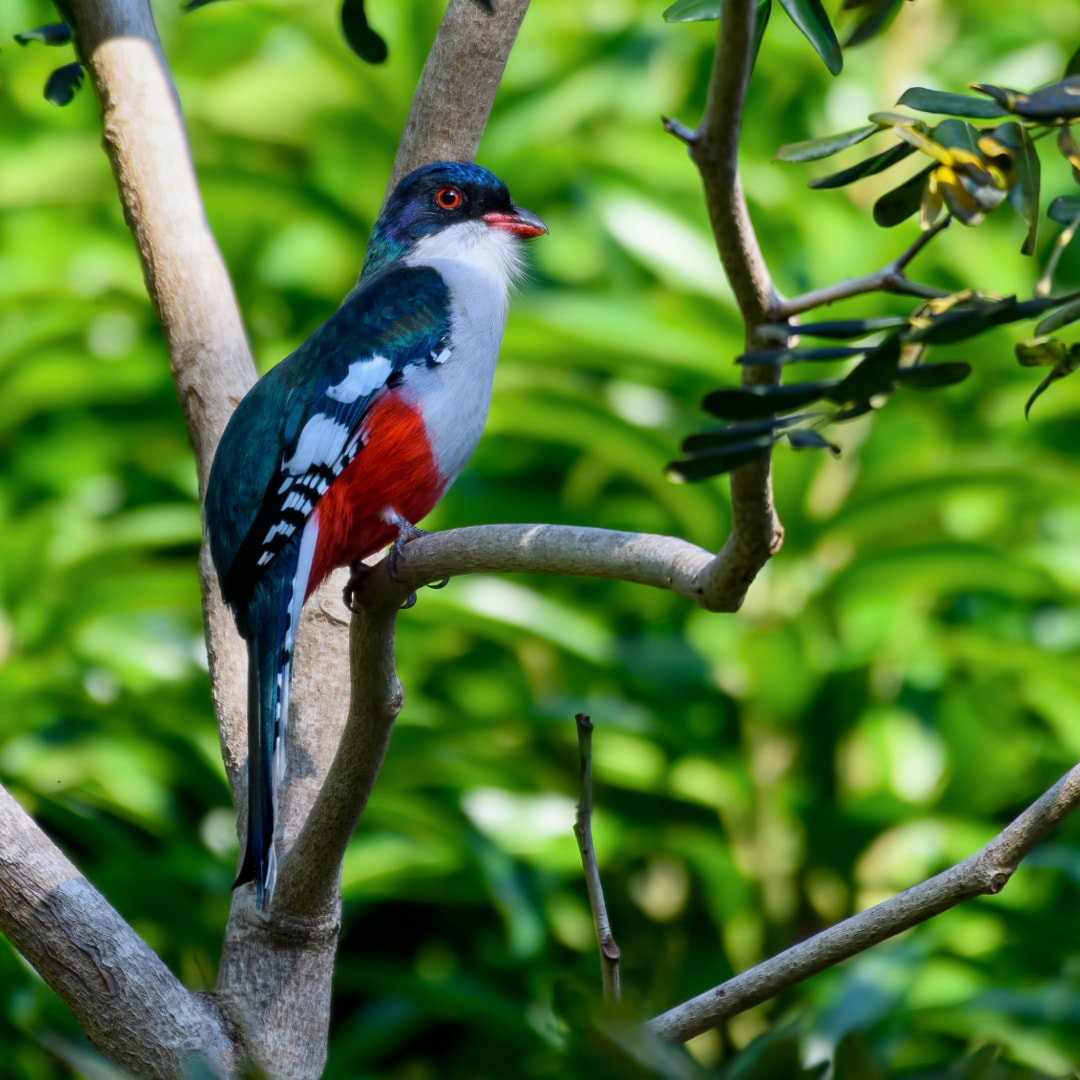

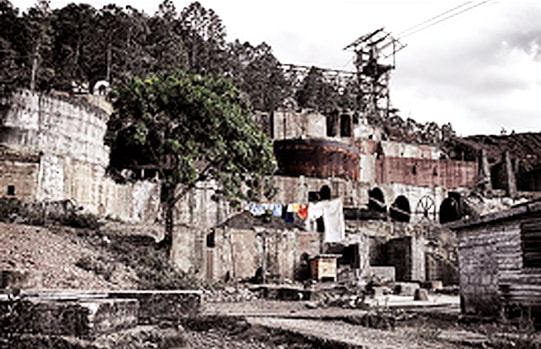
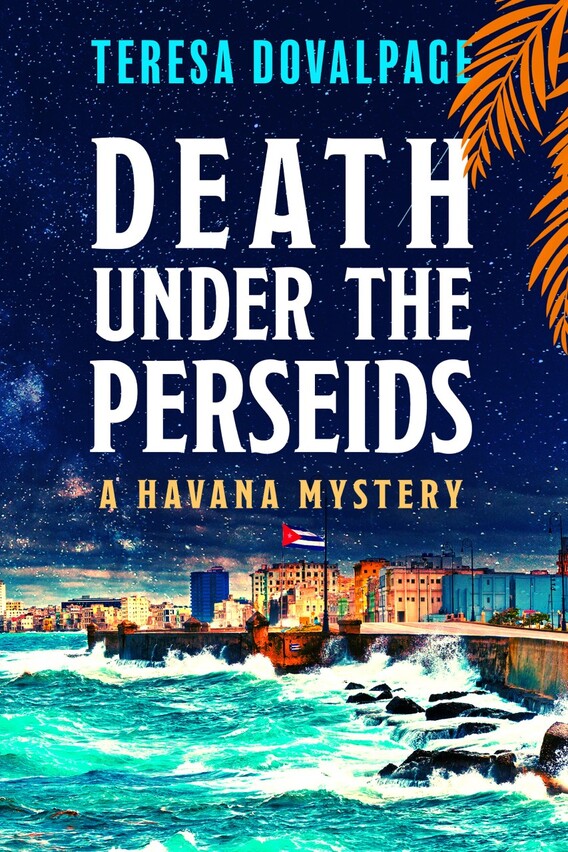
 RSS Feed
RSS Feed